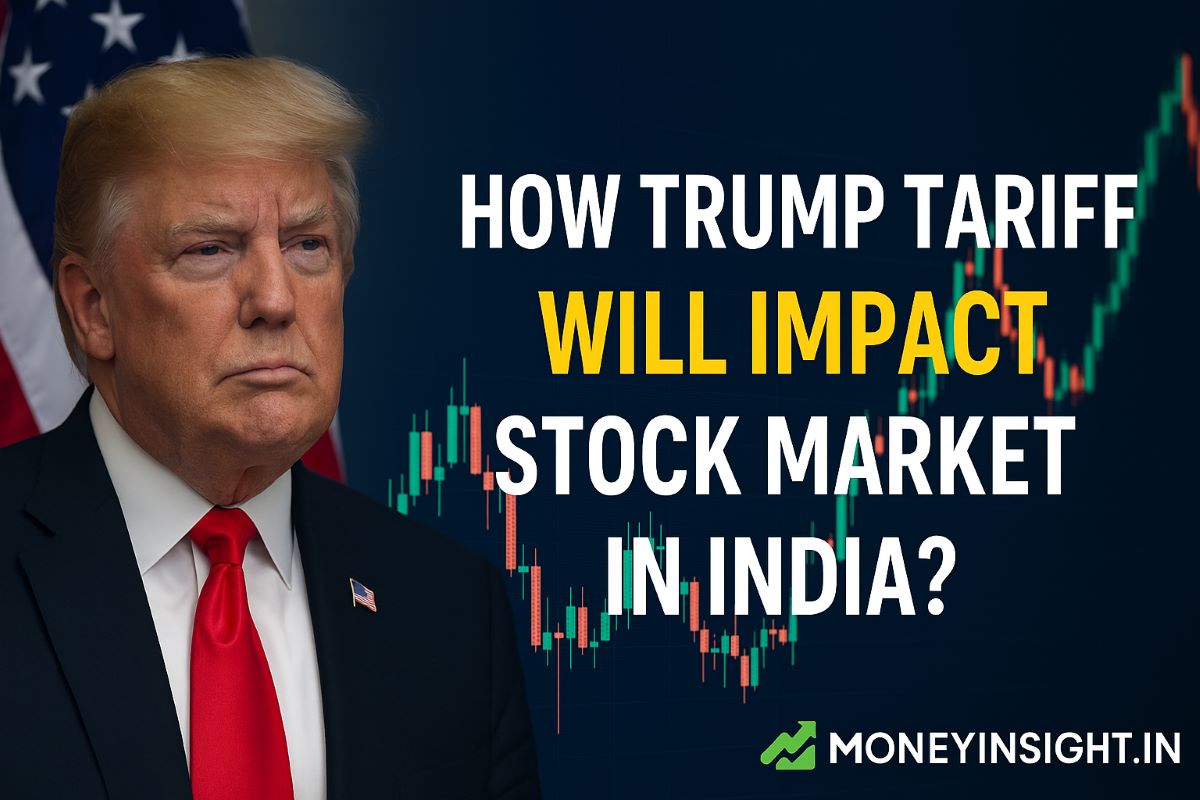Trump Tariff: The recent announcement by U.S. President Donald Trump to double tariffs on Indian goods—from 25% to 50%—has sent ripples through the Indian stock market, triggering immediate volatility and raising concerns about the medium-term outlook for export-driven sectors2.
📉 Short-Term Market Reaction
Indian benchmark indices, including the Nifty50 and BSE Sensex, opened in the red following the news. Export-heavy stocks such as textiles, pharmaceuticals, auto components, and electronics bore the brunt of the sell-off3. Foreign Institutional Investors (FIIs) offloaded equities worth nearly ₹5,000 crore, reflecting a risk-off sentiment. However, domestic institutional investors stepped in as net buyers, providing some cushion.
🧵 Sectoral Impact of Trump Tariff:
The tariff hike disproportionately affects sectors with significant U.S. exposure:
- Textiles & Apparel: Tiruppur and Surat-based exporters face pricing pressure and potential order cancellations. Competitors like Bangladesh and Vietnam may gain market share.
- Pharmaceuticals: U.S. is a key market for Indian generics. Higher tariffs could dent margins and delay shipments.
- Auto Components & Electronics: Just-in-time exporters to U.S. dealerships and tech firms may see immediate volume declines.
- IT Services: Though not directly tariffed, the sector may suffer from broader trade tensions and reduced outsourcing budgets.
🧭 Broader Economic Implications
While the direct impact on GDP is estimated to be modest—around 0.3–0.4% according to CARE Ratings—the broader concern is a slowdown in global trade and investor sentiment. India’s relatively low export-to-GDP ratio (around 21%) offers some insulation, but sectors reliant on U.S. demand will feel the pinch.
🔄 Strategic Responses
India has termed the move “unfair and unjustified,” especially as it stems from geopolitical tensions over Russian oil imports. In response, India may:
- Diversify export markets to reduce U.S. dependence.
- Leverage cheaper Russian oil to offset trade losses.
- Accelerate trade talks with other partners, including the EU and ASEAN.
- 💡 Investor Outlook
- Experts suggest a cautious approach. Export-oriented stocks may underperform in the near term, while domestic consumption-driven sectors—like banking, telecom, and capital goods—could remain resilient. Investors are advised to monitor trade negotiations closely, as a resolution before the full tariff implementation (in three weeks) could restore market confidence
- 🧠 Final Thoughts on Trump Tariff:
- Trump’s tariff move is as much political as economic, possibly aimed at bolstering his domestic image ahead of elections. For India, the challenge lies in navigating this geopolitical curveball without derailing its growth trajectory. The Indian stock market, while shaken, is not broken. Its resilience will depend on diplomatic agility, sectoral adaptability, and investor patience.
Disclaimer: Investment in Capital Market/Share Prices are subject to market fluctuations and are dependent on several factors. These predictions are based on the current market conditions and the future market expectations. Investors are advised to take into consideration all these factors before making any investment in Capital Market. This article should not be treated as Investment advisory and is for general Guidance & Educational purpose only. We keep revising our share price targets based on the latest information available with us. Please keep visiting our website regularly to keep yourself updated. MoneyInsight does not offer investment advice and does not encourage any action based on its content.
Read Also:
How to make maximum profit with minimum investment from the Stock Market ? – MoneyInsight
Also Read :
How to make money from share market? (indiatimes.com)
Visit our another Group Website regularly for more such Educational Research Articles:
News4You – News & Views On Personal Finance & Share Market
Visit our Website regularly for more such Educational Research Articles:

